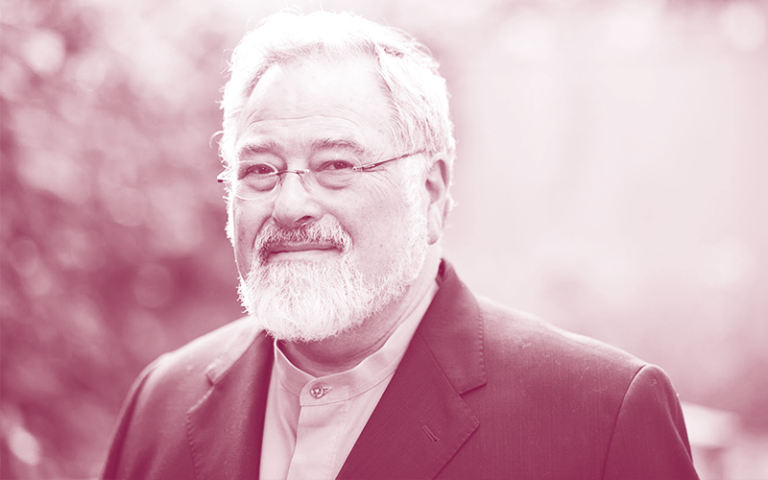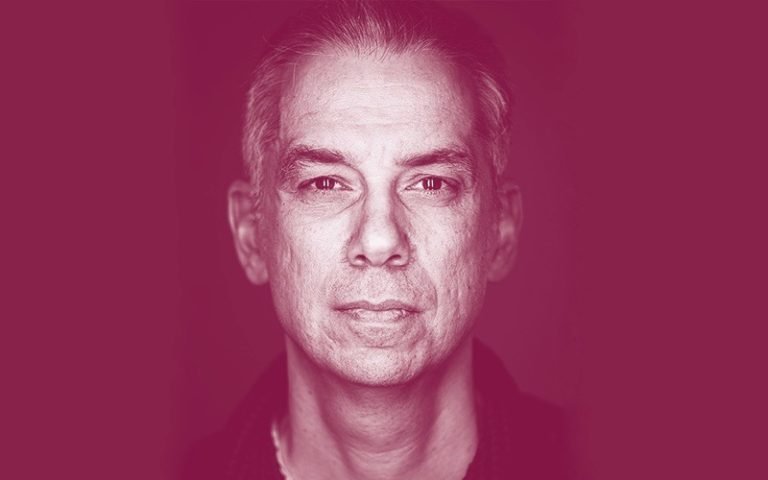
Episodes
Sexual Citizens: Jennifer S. Hirsch & Shamus Khan
Jennifer S. Hirsch and Shamus Khan are Columbia University professors and co-authors of Sexual Citizens: A Landmark Study of Sex, Power, and Assault on Campus. We discuss the concept of sexual citizenship, the need for comprehensive sex education, and the systemic factors that contribute to sexual assault.
Surveillance Capitalism: Shoshana Zuboff
Shoshana Zuboff is a Harvard Professor emerita and the author of The Age of Surveillance Capitalism: The Fight for a Human Future at the New Frontier of Power. We discuss the creation of a human futures market by surveillance capitalists and the pursuit to replace democratic governance with computational governance by instrumentarian power.
This episode was recognized by the Asian American Podcasters Association with their Golden Crane Award for Best Interview.
Canvassing with Love: David Fleischer
David Fleischer is the Director of the Los Angeles LGBT Center’s Leadership Lab. Through their work in talking to thousands of voters, the Center created “deep canvassing,” a method of exchanging narratives to find common ground and decrease prejudice. We discuss how changing minds begins with the heart.
Deconstructing the Alt-Right: Alexandra Minna Stern
Alexandra Minna Stern is a professor at the University of Michigan and author of Proud Boys and the White Ethnostate: How the Alt-Right Warped the American Imagination. We discuss the meta-political work of the Alt-Right in mainstreaming white supremacy and ways to counter this ideology.
The Roots of Conservative Media: Nicole Hemmer
Nicole Hemmer is a political historian and the author of Messengers of the Right: Conservative Media and the Transformation of American Politics. We discuss the birth of conservative media activism, the different way conservatives understand truth, and their impact on American society.
Political Communication Ethics: Peter Loge
Peter Loge is the founding Director of the Project on Ethics in Political Communication and an Associate Professor at The George Washington University. We discuss making American civil religion the moral backbone of our body politic through ethical communication, substantive press coverage of politics and policy, and promoting the truth.
Fact-Checking for Truth: Jon Z. Greenberg
Jon Z. Greenberg is a Senior Correspondent at PolitiFact, a not-for-profit news organization that seeks to present the true facts, unaffected by agenda or biases. We discuss who gets fact-checked, how it works, and why speaking truth to power is one of the most important things we can do.
The New Conspiracism: Nancy Rosenblum
Nancy Rosenblum is Professor of Ethics in Politics and Government at Harvard University and co-author of A Lot of People are Saying: The New Conspiracism and the Assault on Democracy. We discuss why this kind of conspiracism is deeply destructive to our society and how enacting democracy can protect reality and relegimitate our institutions.
The Risks of Fake News: Travis I. Trammell & Elisabeth Paté-Cornell
Lt. Col. Travis I. Trammell worked with Stanford Professor Elisabeth Paté-Cornell to analyze the risks of fake news and create a management decision model to combat disinformation. We discuss the national security risks posed by fake news from other nation states, the kind of influence campaign to expect in 2020, and the most effective countermeasures.
The Truth Sandwich: George Lakoff
George Lakoff is an emeritus professor of cognitive science and linguistics at UC Berkeley whose research includes the language of politics in which we reside. We discuss the importance of framing the truth first, his famous "truth sandwich," and why the press is critical to a functioning democracy.
Post-Truth: Lee C. McIntyre
Lee C. McIntyre is the author of Post-Truth and a Research Fellow at the Center for Philosophy and History of Science at Boston University. We discuss what post-truth means and where it started, what the function of fake news is, and how propaganda plays a role in subordinating a population.
Authoritarianism Under COVID-19: Thomas O. Melia
Thomas O. Melia is the Washington Director of PEN America, a non-profit organization that champions free speech and defends the liberties that make it possible. We talk about authoritarians worldwide consolidating power under cover of COVID, the ever-encroaching surveillance state, and the public perception of Trump’s pandemic response.
The End of Welfare: Kathryn Edin (Rebroadcast)
Kathryn Edin is one of the nation’s leading poverty researchers, who works in the domains of welfare and low-wage work, family, and life, through direct, in-depth observations of the lives of low-income populations. We discuss the evisceration of welfare, the rise of destitution, and the absolute necessity of cash in an advanced capitalist society.
Ending Urban Violence: Thomas Abt
Thomas Abt is a Senior Fellow at the Council on Criminal Justice, and author of Bleeding Out, The Devastating Consequences of Urban Violence--and a Bold New Plan for Peace in the Streets. We talk about why violence must be tackled first, how it is the lynchpin of concentrated urban poverty, and what effective violence reduction strategies should look like.
Reimagining Civic Learning: Louise Dubé
Louise Dubé is the Executive Director of iCivics, an organization whose mission is to cultivate a new generation of students for thoughtful and active citizenship. We discuss the critical importance of high-quality civics education, the role of iCivics games in effective learning, and the necessity for robust investment and legislation in this space.
Stephen Pimpare
Stephen Pimpare is a nationally recognized expert on poverty, homelessness, and U.S. Social policy, as well as a Faculty Fellow at the Carsey School of Public Policy at the University of New Hampshire. We discuss the history and deep indignities of poverty, the stubborn misconceptions, as well as successful public policies that can guide our future.
Michael Faye
Michael Faye is the president and co-founder of GiveDirectly, an organization that sends cash directly to people living in extreme poverty. We discuss why we should use cash as a new benchmark for international aid, unpack false assumptions about decision-making, and examine the benefits of universal basic income.
Brent Wilkes
Brent Wilkes is the former CEO of the League of United Latin American Citizens (LULAC) and a lifelong advocate for Latino rights. We discuss what fair and comprehensive immigration could be, the positive contribution by immigrant labor to the US economy, and how we can demand sound immigration policy at the ballot box.
Mark Hetfield
Mark Hetfield is the President and CEO of HIAS, the oldest refugee assistance organization in operation. We discuss our humanitarian obligations to refugees, the tremendous benefits that they bring to American society, and bust the misconceptions about the current refugee situation in the US.
Ian Bremmer
Ian Bremmer is a prolific thought leader and author, the president and founder of Eurasia Group, as well as foreign affairs columnist and editor-at-large at TIME. His most recent bestseller is Us vs. Them: The Failure of Globalism. We discuss how globalism, the ideology, has been rejected, and what we can do to write a new, more equitable social contract.


















